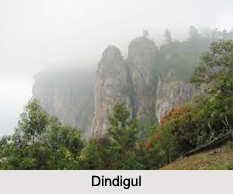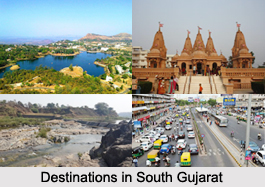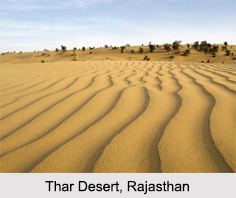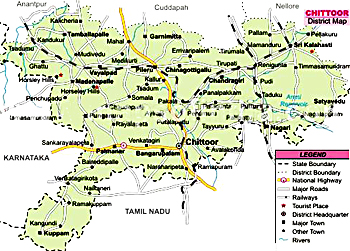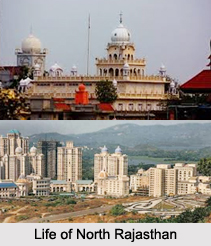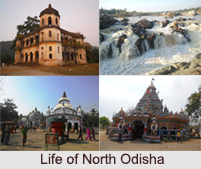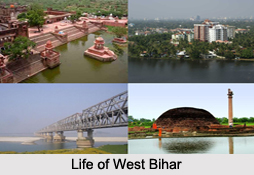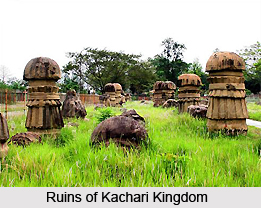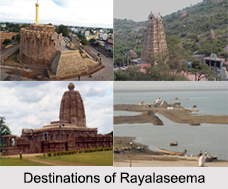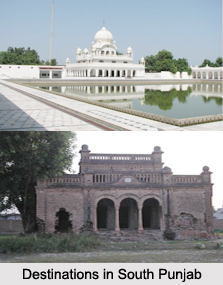Introduction
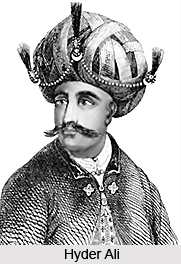 Medieval history of Kerala was shaped with the decline of the Chera Empire and the rise of a number of independent states, including Kozhikode, Venad, Kochi and Kolathunad empires. In the medieval age, (sixteenth century onwards) Calicut came out as a prominent sea port and attracted Dutch, Portuguese and British traders to set up their posts here. However, the Arabians were the first to have control over the trade of spice in Kerala. It was the explorer, Vasco da Gama who reached Kerala in the year 1498 to interrupt the determination of the control of the Arabs over the spice trade in the state of Kerala and founded in Cochin, the first Portuguese fortress by availing the advantage of the differences between the royal families of Cochin and Calicut. The fight between Cochin and Calicut facilitated the Dutch to set up their settlements for trade in Kerala and they ultimately kicked out from the land, the Roman Catholic Portuguese.
Medieval history of Kerala was shaped with the decline of the Chera Empire and the rise of a number of independent states, including Kozhikode, Venad, Kochi and Kolathunad empires. In the medieval age, (sixteenth century onwards) Calicut came out as a prominent sea port and attracted Dutch, Portuguese and British traders to set up their posts here. However, the Arabians were the first to have control over the trade of spice in Kerala. It was the explorer, Vasco da Gama who reached Kerala in the year 1498 to interrupt the determination of the control of the Arabs over the spice trade in the state of Kerala and founded in Cochin, the first Portuguese fortress by availing the advantage of the differences between the royal families of Cochin and Calicut. The fight between Cochin and Calicut facilitated the Dutch to set up their settlements for trade in Kerala and they ultimately kicked out from the land, the Roman Catholic Portuguese.
The Dutch were however not able to carry on in the state beyond the eighteenth century because of the fight in between the Mysore rulers. After them, came the British, who were the most successful ones and established their colonial power in India. Hyder Ali`s successor, Tipu Sultan, had some difference with the British, and four Anglo-Mysore wars took place across southern India during the later half of the eighteenth century. Tipu Sultan gave up the district of Malabar to the British in the year 1792, and South Kannara, which includes today`s district of Kasargod, in the year 1799.
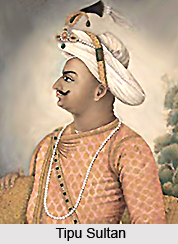 The British terminated their treaties of auxiliary alliance with the Cochin rulers in the year 1791 and with the rulers of Travancore in the year 1795, and thus these two states became British India`s princely states, upholding local autonomy and in return used to give a fixed tribute annual to the British Raj. South Kannara and Malabar districts became the parts of the Madras Presidency of British India.
The British terminated their treaties of auxiliary alliance with the Cochin rulers in the year 1791 and with the rulers of Travancore in the year 1795, and thus these two states became British India`s princely states, upholding local autonomy and in return used to give a fixed tribute annual to the British Raj. South Kannara and Malabar districts became the parts of the Madras Presidency of British India.
The springing up of the freedom struggle of India was also witnessed in the state of Kerala in the medieval period. The Satyagraha and Non Co-operation movements were helpful in about all the parts of the South Indian state. A number of mass protests were held in various parts of the state to get rid of several social evils including caste feelings and untouchability. After the independence of India in the year 1947, the south Indian state of Kerala was formed on the 1st November, 1956 when the district of Malabar was mixed with Tranvancore-Cochin state and Kasargod taluk of the district of South Kanara to create the Kerala state, established on the recommendations of the State Reorganization Commission established by the Government of India.
In the medieval period, the settlements in Kerala depended on agricultural production. Apart from the agricultural labourers, there were blacksmiths who used to make metal tools, carpenters, masons, etc. Some of the people like astrologers were also present at that time, which used to fix the suitable period for a list of new ventures, apothecaries and men who executed the rituals linked with the household and agricultural activities and this formed the primary unit of a society.
Another major feature of the medieval society of Kerala was that the area of settlement used to possess a temple complex where the Brahmin caste used to enjoy a prominent status. They rely chiefly on agricultural production. In the primary units, people were there who helped the priests as well. In the cores of royal power and in the hearts of trade the traders and the royal servants constituted part of the primary unit of society.
Different professional classes afterwards evolved into castes. Along with the change in the society, there were significant changes in the entire set up of the castes also. Until the medieval era, such castes as Ezhava and Nayar had no concrete differentiation. With the increase in number of the Naduvazhis and with the increasing importance of militarism, a prominent section of the soldiers became Nayars. Several professional groups including Kammalas, Ambalavasis, etc became Nayars as they joined the troops.
Social Life in Medieval Kerala
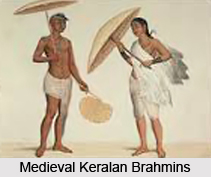 Social Life in Medieval Kerala witnessed continuity despite constant political changes. The Marumakkatayam system of inheritance and the economic independence of women were two unique features of the social life of Malabar. Women had the right to own their own property and were not dependent upon man. They enjoyed almost equal rights with men in many walks of life.
Social Life in Medieval Kerala witnessed continuity despite constant political changes. The Marumakkatayam system of inheritance and the economic independence of women were two unique features of the social life of Malabar. Women had the right to own their own property and were not dependent upon man. They enjoyed almost equal rights with men in many walks of life.
As ancient Kerala was part of Tamilakam its culture and language were the same as those of the Cholas and Pandyas. The political division of the country brought about a distinct change in customs and manners. Now the region had its own language, culture, organization, traditions and institutions
The two noteworthy features of the middle Ages were theocracy and feudalism. Namboodiris tried to establish a theocratic form of Government. Feudal institutions were prevalent in the country due to the peculiar civil and military organisation of the Nairs. The Namboodiris and Nairs effectively checked royal authority. These two communities occupied a prominent position in the history of Medieval Kerala.
Brahmins occupied a dominant position in Kerala due to their peculiar socio-political organisation. It is believed that the Namboodiris introduced caste as a political institution in Kerala. They also laid down in Sanskrit language the rules of life that regulated the most trivial actions. The Nairs were prohibited to learn Sanskrit. The Brahmins became a powerful sacerdotal class by the beginning of the middle Ages. They exercised their power in all the sixty four villages that extended from South Kannada to Central Travancore.
The Brahmans associated themselves with the government in various methods: they were the ministers of the Rajas, their officers on the Bench, their generals in the field and as spiritual preceptors. This was not peculiar to Malabar, but in no other part of India did the Brahmans possess so much say in political affairs. They constituted a national body and owed only nominal allegiance to the temporal power.
Their alliance with the royal families and the leading aristocrats with the Nairs was a factor that contributed to the enormous influence wielded by the Brahmans on the civil order of the day. Only the eldest son of a Namboodiri is allowed to marry in his own community. There were many rich Namboodiri Jenmis. They had a considerable voice in the sanketams due to their endowments to the temples.
The ruling and the fighting classes were preoccupied with warfare almost all the twelve months of the year. This helped the Namboodiris to strengthen their sectarian organisations and establish solidarity in the community. Their class-consciousness made them an extra-national community that resulted in reduction of royal authority.
The custom of the land: maryada, acharam or nattunadappu exercised a restrictive influence on the powers of the king. In fact the powers and privileges possessed by the high class was a product of the custom of the land. The king also had to abide by the customs.
However one cannot suppose that the mediaeval kings of Malabar were mere political nonentities. Their subjects were also bound by customs. A singular lack of central authority was a common feature of the mediaeval period; the rulers played the most important part in the government. Most of them were dependent upon the willing allegiance of their feudal nobility. The chiefs were asked to pay certain customary tributes to him and recognise his over lordship. The rulers also respected the rights of the chiefs and feudatories under them.
The relation between one ruler and another was governed by certain established customs, as the relation between the ruler and his subjects. Perpetual strife among the different states made it difficult to maintain peace in the middle Ages. There were certain rules of war which were bayed by the belligerents. One such rule was that the defeated ruler should be restored as a feudatory that was followed by the Malabar rulers till it was set aside by Marthanda Varma. Another rule was that the Nair lords should not be punished as ordinary individuals even when they go against constituted authority.
Desavali was mainly the military chief of his village who marched at the head of the quota of his soldiers during war time; he had other duties as well. He assisted the administration in the collection of fines forfeitures and other dues to the Government. He also decided petty suits and was responsible for establishing law and order. In order to ensure civil administration nadus were divided into gramams and Taras.
Sanketam in Medieval Kerala
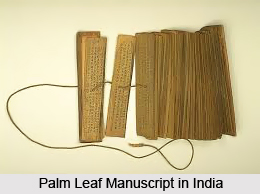 The concept of Sanketam came up in the seventeenth century. Palm leaf records narrate the varied powers of the sanketam. All important devaswoms in Malabar had their own independent jurisdictions or sanketams. Sanketam were the possessions beyond the control of the sovereign or local chieftains who are protectors of these jurisdictions. These were well-defined. The temple corporations exercised sovereign authority. In order to guard themselves against encroachment, they associated themselves with a secular leader to defend these possessions. However they never gave up their right of ownership. They along with other persons who were attached to the temple were known as Yogam.
The concept of Sanketam came up in the seventeenth century. Palm leaf records narrate the varied powers of the sanketam. All important devaswoms in Malabar had their own independent jurisdictions or sanketams. Sanketam were the possessions beyond the control of the sovereign or local chieftains who are protectors of these jurisdictions. These were well-defined. The temple corporations exercised sovereign authority. In order to guard themselves against encroachment, they associated themselves with a secular leader to defend these possessions. However they never gave up their right of ownership. They along with other persons who were attached to the temple were known as Yogam.
These bodies formed the political backbone of the country. Even the sovereigns were liable to be punished for acts of tyranny within the sanketam. If the monarch committed an act of tyranny the sanketam would be dissolved and this would create a constitutional crisis. If the King failed to make changes immediately he would be liable to a further penalty for not restoring the sanketam earlier. The sanketam was an independent institution exercising sovereign authority. It was a self-working and self--contained community that recognised no sovereign except the Yogam. The administrative functions of the committee were complete and an outsider had no chance to interfere. The governing authority possessed the right to punish offences including capital punishment and to collect the various kinds of land equivalent to decline of religious influence. They were the strongholds of the priestly class and managed to curtail the powers of the ruler.
The sanketam was one of the principal institutions through which the Brahmans exerted their influence in mediaeval politics. Sanketam was basically a stipulated territory over which no king had power to exercise temporal authority. The local chieftains also had no control over sanketams. Some temples had vast areas under it as sanketams. Two types of sanketam were prevalent: Grama sanketam and Ksetra sanketam. Grama sanketam was related to thirty two Brahmins and Kshetra sanketam refered to new settlements.
Revenue System in Medieval Kerala
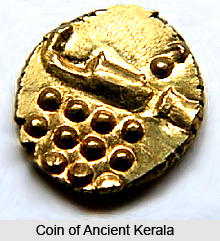 Revenue system in Medieval Kerala was not based on forced contribution. There were various sources of revenue that prevailed in Medieval Kerala. Land tax was unknown in the middle ages. The land belonged to the Namboodiris which was considered as a gift from Parasurama and therefore no tax could be levied on Brahmaswam. It is believed that the majority of the Brahmin janmis were exempt from certain taxes under the Hindu system. There was no standing army thus other sources of revenue was adequate for the Government. The chief sources of income were:
Revenue system in Medieval Kerala was not based on forced contribution. There were various sources of revenue that prevailed in Medieval Kerala. Land tax was unknown in the middle ages. The land belonged to the Namboodiris which was considered as a gift from Parasurama and therefore no tax could be levied on Brahmaswam. It is believed that the majority of the Brahmin janmis were exempt from certain taxes under the Hindu system. There was no standing army thus other sources of revenue was adequate for the Government. The chief sources of income were:
* Ankam - Ankam means fight. If any dispute occurred it was solved through a fight. Fight takes place between the respective professionals of the parties in dispute known as Chekors. Each party had to deposit with the ruler a certain sum in three separate purses - nattukili, vittukili and ankakili. The vittukili and ankakili went to the house of the fighters respectively. Nattukili went to the ruler. It varied according to the income of the parties.
* Chunkam - It means customs. Custom duties on imports and exports both by land and sea constituted a major source of revenue. This differed with the rulers. At times it was only 2 to 3 per cent.
* A powerful ruler sometimes would occupy the estates of neighbouring Rajas or Naduvalis and in token they were forced to make annual payments to him in cash or kind.
* Kola was a forced contribution from towns especially during emergency. This amount varied as per circumstances.
* Tappu - Desavalis, Naduvalis and rulers received fines from people for unintentional crimes.
* Pila - This was a fine that was levied for intentional crimes. The amount taxed depended on the degree of the crime and individual`s circumstances.
* Purushantaram or fee of succession - This was a fee levied by the Rajas from Naduvalis, Desavalis(heads of commercial corporations) from the holders of lands in free gift or under conditional tenure. Generally persons holding position possessed considerable wealth and enjoyed privileges depending on the favour of the Raja also pay this fee.
* Pulayattu Pennu or faithless woman was a source of double profit to the ruler. Degraded women were taken care of by the ruler. As a compensation for their maintenance their family had to offer 600 fanams or Rs 150. The ruler would dispose them off for money to the coast merchants called chettis.
* Kalcha- These are presents made by all ranks of people to a Raja or Naduvali when they had to offer congratulations or. This was made on occasions of national festival like Onam and Vishu.
* Dattu Kalcha - adoption fee. People who want to adopt have to obtain the permission of the king as well as to pay a fee which is a fixed proportion of the estate which is entitled to the adoptee.
* Ponnarippu or gold sifting - Certain rivers wash down gold and the search for it was allowed only after paying to the king or the Naduvali.
* Attaladakkam - When a man irrespective of his position died without heirs, the Raja took his property when the lands were held in free gift. This was not applicable to the Brahman families.
* Atimappanam - This was a yearly payment of one or two fanams that was levied by the lord, prince or patron on every one of his vassals.
* Cherikkal- the Kings possessed those things that were acquired by purchase, lapse or eschet.
* Some kinds of bulls, cows, elephants and pigs belonged absolutely to the Raja like: cows with five or three dugs (aimula and mummula), cattle that killed a human being or an animal, cattle with a marked tail or born with a peculiar white spot near the corner of the eye, wild elephants caught in jungles and pigs that had fallen into wells.
* Utanha and Atinha Uruhkal - Ship-wrecked vessels and vessels floated ashore. These belonged to the ruler. Plundering of ships which were meant for some other court was another custom that was followed.
* Certain royal privileges from hunting expeditions such as tusks of dead elephants, hind quarter of any dog dear or other edible animal slain in hunting, the tail or the skin of all the tigers.
* Talappanam - This was a sort of poll-tax that was levied on occasions from poor sections.
* Precious metals nad other items which might be discovered: cardamoms, teak, jack.
* Valappanam - This was a tax levied on fishermen for exercising their duty.
* Changatam or protection money - Whenever a man wished to place himself under the protection of a King or a Naduvali he paid an amount to his overlord and made an assignment of particular lands as guarantee for payment. The sum was used for the maintenance of a kind of guard for his protection. When the travellers paid protection money to the ruler they would be escorted by armed Nairs. This was also called kaval changatam or guard companion. Even the adjoining chiefs of a powerful neighbour, who were not strong enough to resist attacks sometimes, placed themselves under this protection. Changatam often proved to be a good source of income to a powerful ruler.
* Rakshabhogam was another type of protection money but slightly different from changatam. Here the protection was for a general cause and not limited to any exact aid.
There were hardly any fixed taxes and assessments. However, the revenue system was influenced by customs and other factors.
Administration in Medieval Kerala
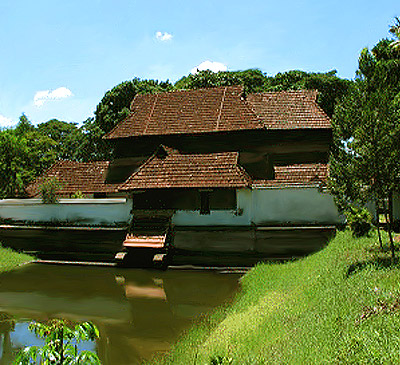 Administration in Medieval Kerala had the King as its head. When the government was headed by the early perumals the Travancore kingdom was divided into four:
Administration in Medieval Kerala had the King as its head. When the government was headed by the early perumals the Travancore kingdom was divided into four:
* The Tulu kingdom that extended from Gokarnam to Perumpula.
* The Kupa kingdom that extended from Perumpula to Putupattanarn
* The Kerala kingdom that extended from PutuPattanam to Kannetti
* The Mushika kingdom that extended from Kannetti to Cape Comorin.
The relative position of the ruler, the nobles and the religious class indicates that the Government was based on the principles that resembled of the feudal system of medieval Europe. The land was divided into nadus and desams. The nadus and desams consisted of many Nairs such as the "Five Hundred" of Kodakaranad, the "Four Hundred" of the Annamanad and the "Three Hundred" of Chengalinad. This non-nucleated character of the village was a unique feature of the Malabar administration
Every division and subdivision of the state had its own head. A Nair village or tara consisted of several houses lying detached in the midst of gardens. The village had its own organisations for civil and administrative purposes. The Karanavans or the eldest members of the households looked after the local affairs of the Nair village. They also supervised the cultivation of the lands of their chief. In return for this each Karanavar received a share of the agricultural produce. He was also expected to render military service to his chief whenever required.
The village headman was called Gramadhipatis or Janmivalis. They were also known as Desavalis in some places. The difference between the two is slightly different. They are the sole proprietors of the lands in their respective villages and also enjoy special privileges like: Ambalappati - the direction of the ceremonies of village pagoda, the management of the pagoda lands, Asaima or control of all the ceremonies in the houses of his village and the Desadhipatyam or the supervision of the village. A village headman who did not have the first two privileges was known as Janmivali.
The Nairs formed the military class. Most of them were retainers of chiefs or kings of Kerala. They served their chief in war in order to protect his dominions. They had to be in the fields of battle so most of them held their estate in fief from their chief.
Every village was self-governing and had its own headman, Pramanis, the hereditary village servants, panchayats, kuttams, police (kaval) and watchmen (kavalkar). The functions of each of these were well-defined.
Judicial administration was also headed by the king. There were no written laws. Customs were the unwritten laws. Justice was free in medieval Kerala.
Local Administration in Medieval Kerala
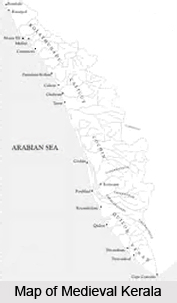 Local Administration in Medieval Kerala was managed mainly by the Nair caste. Every village has a Desavali except where the village was the private property of the Naduvali or the king. The chief could also acquire lands by purchase. The village council was usually held in the temples. Some of these temples were exclusively owned by the Nairs. The council was held at the beginning of every month for the administration of affairs connected with caste.
Local Administration in Medieval Kerala was managed mainly by the Nair caste. Every village has a Desavali except where the village was the private property of the Naduvali or the king. The chief could also acquire lands by purchase. The village council was usually held in the temples. Some of these temples were exclusively owned by the Nairs. The council was held at the beginning of every month for the administration of affairs connected with caste.
Dasavali was assisted by two Pramanis in police and judicial matters. The Pramanis were neither appointed nor hereditary. They belonged to the caste of Namboodiris and Nairs. However the other castes were not altogether excluded. Pramanis should be acceptable to both parties and if both attended they disposed off the matter without referring to the Desavali. This happens only if one of the parties wanted the case to be trialled in the village court or Panchayat. However if the defendant refused to attend, the Desavalis interfered and issued summons directing the Pramanis to decide the case in his court. The summons were obeyed but if it was refused the Desavali applied to the Naduvali, the chief, who settled the case himself. In case a village had no Pramani a case would be referred to a neighbouring village. The Desavali settled minor disputes. The major disputes were settled by the chief after a preliminary investigation was conducted by the Desavali. The Desavali and the Pramanis received fees for suits decided by them which were paid in equal shares by both the defendant and the plaintiff.
The Naduvali was the chief of the district. He enjoyed the same powers and privileges in the district as the Desavali. Naduvalis have to render military service to the king when they are called upon to do so. They were independent rulers in their respective district. These Nair lords held office by tenure. They also claimed to have derived their ownership from Parasurama. However all the Naduvalis were not equally powerful or rich. In some cases the Naduvali himself was the Desavali. There were also those who owned only one or two villages in the district. The line of demarcation between the Desavali and the Naduvali was so thin that at times a successful village headman played the role of a Naduvali. A person can be a Naduvali if he had at least one hundred Nairs attached to his range. In case he had less than hundred Nairs it made him a Desavali.
The Naduvalis differed in their status and position and this was indicated by their names. They might be swarupis, prabhus or matambis and styled Achan, Raimal or Nair. The tributary Rajas like Purakkad and Alangad or subordinate chiefs like the Kaimal of Koratty or Nambiar of Murianad were Naduvalis who possessed a high status and had the power of life and death over their subjects. The Prabhus were inferior to Kaimals as they were denied this power. The matambis belonged to the third class of the Naduvalis who were petty chiefs with limited powers.
The Naduvali was the chief police and judicial officer of the district. He was the revenue officer. He was assisted by two accountants who kept the report of his collections and records of land transfer. He had a share of every division of the Raja`s revenue-customs, fines, and confiscation of the property and so on. Naduvalis had to pay certain fees to the King - a succession fee or purushantaram. They also had to pay an annual tribute or andukalcha and an annual contribution for special protection called rakshabhogam. The Naduvali was the military chief of his district who was bound to march at the head of his soldiers at the command of the Raja. He would be accompanied by the fighting men under their respective Desavalis. All the soldiers of the district were under his control. Even when he would go against the King custom did not permit the Raja to abolish his office or confiscate his estate. However the rebel would be punished.
Military Administration in Medieval Kerala
 Medieval principalities and chiefly families maintained their military groups. This practice of maintaining local militia can be traced back to the period of formation of Nadu in Kerala during the Perumal rule. The Perumal had a capital force of several groups of soldiers under thousand `Nayakas` or `Nair` captains.
Medieval principalities and chiefly families maintained their military groups. This practice of maintaining local militia can be traced back to the period of formation of Nadu in Kerala during the Perumal rule. The Perumal had a capital force of several groups of soldiers under thousand `Nayakas` or `Nair` captains.
Each of these groups comprised of ten soldiers. The function of the fighters was not limited to settling rivalry among political authorities alone. They were invited for settling disputes between ordinary people and this resulted in the emergence of `Ankam`.
The Nairs constituted the important division of the population. They were the knights of the middle ages. They lived upon military service to their overlord. The chief occupation of the Nairs was fighting and they were retained in their service by rulers of different parts of Malabar. They were faithful to their lord that they pledged their life for his sake.
The martial spirit of the soldiers was kept up by several institutions designed specially for that purpose. It is also believed that Cheraman Perumal partitioned the country and introduced the Chekors who were invariably to perpetuate this martial spirit in the Nairs. The Kalari was the most popular institution that braced up the soldiers. Kalari was a school where instructions were given in warfare and letters. The teachers were Nairs and the system worked well so long as they controlled the various activities of the State.
However when the Namboodiris appeared on the scene with their Sanskrit learning, indigenous culture was influenced. Thus Brahmins became the acknowledged teachers and the Nairs were forced to concentrate on military training at the expense of intellectual equipment. The asan or the fencing master supervised the training of the people. This institution was more popular in the north. The Kadathanad locality was known for its great hero named Taccholi Otenan. The Nair soldiers were trained to despise death and regard fighting as a sport.
Naduvali was the chief of the district. The Naduvali was the military chief of his district who was bound to march at the head of his soldiers at the command of the Raja. He would be accompanied by the fighting men under their respective Desavalis. All the soldiers of the district were under his control.
Judicial Administration in Medieval Kerala
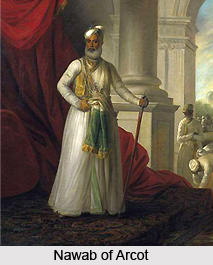 Judicial administration in medieval Kerala revels that all laws proceeded form the King that was implemented by officers appointed by him. There was no written code of law as such. However above all this it was the customs that ruled the land. Due to this judicial administration was a very simple.
Judicial administration in medieval Kerala revels that all laws proceeded form the King that was implemented by officers appointed by him. There was no written code of law as such. However above all this it was the customs that ruled the land. Due to this judicial administration was a very simple.
The landlord could prevent the tenant from cultivating the land without evicting him. He had to send his servant with a bundle of leaves and a handful of clay which the servant would deposit in the middle of the land, from which rent was due. Thereafter he had to swear that his landlord had forbidden him to cultivate the land till he paid the rent.
When payment was demanded of the debtor, a circle is drawn round him with a green branch. The payment would be demanded in the name of the Brahmins and the ruler.
The Naduvalis and the Desavalis as well as the Karanavars had their respective share in judicial administration of the nadus and the desams. Tara organisation also played its part in the administration of justice. The Karanavars settled of minor issues. Criminal offences were settled by the king after investigation by Karanavars or the Desavalis.
Law and justice depended upon the position and status of the accused. For instance if the accused belonged to the high caste he would lose his caste or be banished. Women were traded as slaves. The decisions of the Karanavars in civil cases were agreed by the parties. However there were occasions when the defeated party tried to get the decision reversed by appealing to the king. Caste disputes were decided by the Brahman judges. Justice was absolutely free in medieval Kerala.
It is believed that there was no torture during judicial investigation. Crimes were detected by ordeal which was not peculiar to Malabar. There were four types of ordeal:
* Water ordeals were popular. The suspected person was asked to swim through a river which had many crocodiles and reptiles. He would be considered innocent if he had come out unhurt.
* Another common form of water ordeal was used when there were cases of theft. The names of all the inmates of the house from which the article was lost were written on paper chits. Each was enclosed in a ball of wax and was thrown together in a pot of water. It was believed that the ball containing the name of the guilty would float on the surface.
* The fire ordeal - The accused was asked to dip in his hand up to elbow in boiling ghee or oil. If the hand showed no sign of burning after three days, he was considered innocent. If his guilt was proved, he would be executed after confession.
* Ordeal by poison - There were two kinds. The accused had to take a certain quantity of poison from the hands of a Brahman and remain unaffected. Else he had to take out a coin or something from a deep earthen pot containing a cobra.
* Ordeal by balance - the accused was asked to fast for the whole day and weigh him in a balance, then to have a bath and weigh himself once more with the accusation recorded fastened on his forehead. He was innocent if he weighed less.
In both civil and criminal cases appeal to supernatural was a common method that was employed in detecting crimes. Extreme penalty of law was invariably imposed in case of five crimes except in the case of the Brahmans. These five crimes are: murder of a Brahman, drinking spirits, theft, disobeying teacher`s rules and killing of a cow. At times capital punishments were also inflicted sometimes by piercing alive or being torn by elephants. As the central authority was weak the mutual jealousies and mediaeval notions of chivalry of the nobles was always in a state of political turmoil. The marriage laws of Malabar were modern. If either party desired dissolution it was granted by the other party and the woman was free to marry again. Widowhood was unknown among the Nairs.







